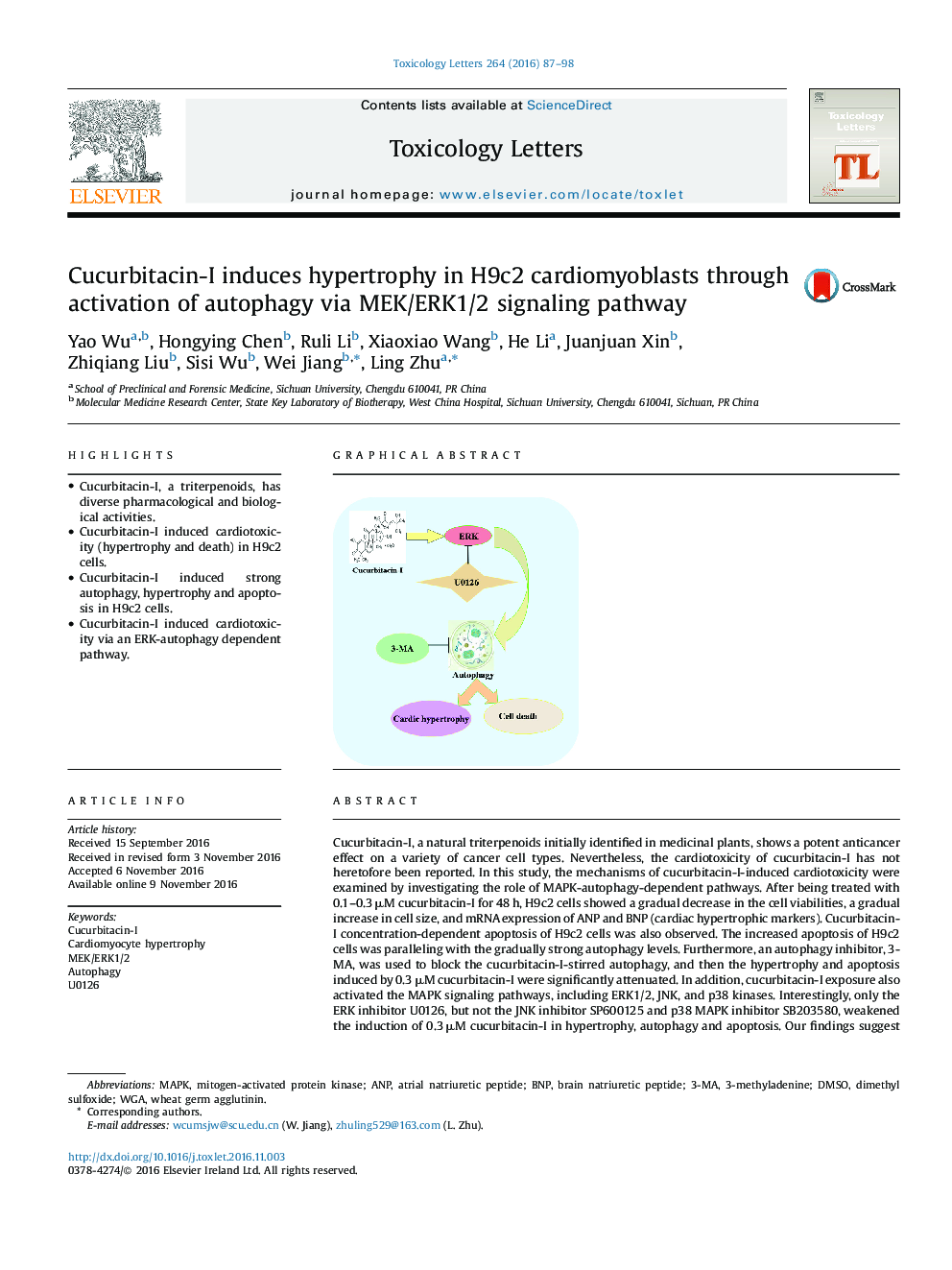| Article ID | Journal | Published Year | Pages | File Type |
|---|---|---|---|---|
| 5562291 | Toxicology Letters | 2016 | 12 Pages |
â¢Cucurbitacin-I, a triterpenoids, has diverse pharmacological and biological activities.â¢Cucurbitacin-I induced cardiotoxicity (hypertrophy and death) in H9c2 cells.â¢Cucurbitacin-I induced strong autophagy, hypertrophy and apoptosis in H9c2 cells.â¢Cucurbitacin-I induced cardiotoxicity via an ERK-autophagy dependent pathway.
Cucurbitacin-I, a natural triterpenoids initially identified in medicinal plants, shows a potent anticancer effect on a variety of cancer cell types. Nevertheless, the cardiotoxicity of cucurbitacin-I has not heretofore been reported. In this study, the mechanisms of cucurbitacin-I-induced cardiotoxicity were examined by investigating the role of MAPK-autophagy-dependent pathways. After being treated with 0.1-0.3 μM cucurbitacin-I for 48 h, H9c2 cells showed a gradual decrease in the cell viabilities, a gradual increase in cell size, and mRNA expression of ANP and BNP (cardiac hypertrophic markers). Cucurbitacin-I concentration-dependent apoptosis of H9c2 cells was also observed. The increased apoptosis of H9c2 cells was paralleling with the gradually strong autophagy levels. Furthermore, an autophagy inhibitor, 3-MA, was used to block the cucurbitacin-I-stirred autophagy, and then the hypertrophy and apoptosis induced by 0.3 μM cucurbitacin-I were significantly attenuated. In addition, cucurbitacin-I exposure also activated the MAPK signaling pathways, including ERK1/2, JNK, and p38 kinases. Interestingly, only the ERK inhibitor U0126, but not the JNK inhibitor SP600125 and p38 MAPK inhibitor SB203580, weakened the induction of 0.3 μM cucurbitacin-I in hypertrophy, autophagy and apoptosis. Our findings suggest that cucurbitacin-I can increase the autophagy levels of H9c2 cells, most likely, through the activation of an ERK-autophagy dependent pathway, which results in the hypertrophy and apoptosis of cardiomyocytes.
Graphical abstractDownload full-size image
